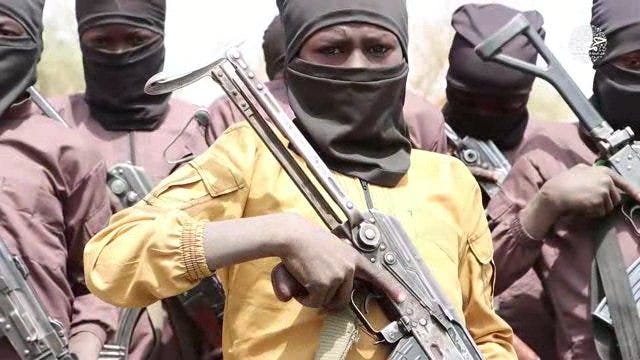This past week, a very important report was released by UNICEF (United Nations Children’s Fund) regarding the use of child soldiers in Central and West Africa. The numbers that were revealed are stunning. Since 2016, over 21,000 children have been recruited to fight in West and Central Africa. What is a point of concern is that the report documents both government forces and insurgent groups as recruiters of children for conflict and other purposes.
There a number of other striking statistics included in the report — 2,200 children are verified to be victims of sexual abuse, and 3,500 others have been abducted which makes this region the second highest in the world for abductions, and, perhaps most devasting of all, a minimum of 1,500 schools and hospitals in the region have been attacked.
The report had a primary focus on the Sahel region. The series of events that took place in Mali in 2012 fostered instability in the country, which continues to this day, with the rise of groups such as JNIM (Jama’at al Nasr al-Islam wal Muslimin). However, another conflict hotspot that has fueled regional instability is Northeastern Nigeria. The insurgencies in Nigeria predate those in Mali and have influenced the situation in neighbouring countries as well.
Additionally, the report documents three developing areas of concern: Burkina Faso, Cameroon and the Lake Chad Basin. It has been a few months for Burkina Faso, and attacks have increased in ferocity over the last couple of years. Cameroon has multiple ongoing conflicts ongoing with Islamist militants active in the North of the country and a separatist movement active in the Anglophone region which borders Nigeria. Given these trends, one can conclude that the security environment in the area has deteriorated over the last five years.
The Lake Chad Basin is a region fraught with both dangers and challenges. Instability in the region affects not only the crises in Nigeria and Cameroon but also Niger and Chad. Chad has a history of violence and should remain a country of focus, especially after the death of its former President Idriss Deby during a clash with insurgent forces earlier this year.
There are some notable omissions by UNICEF as well. Several reports indicate that Benin, which has suffered attacks by militant groups, should also be monitored. It is also worth noting that, on November 11, Togo revealed that, for the first time, an Al-Qaeda-linked jihadist attack had taken place within its borders. Another country that should be a concern is the Ivory Coast. The northern part of the country has seen an increase in militant attacks, and the government is planning to recruit 3,000 more soldiers. During the Ivorian Civil War, the use of child soldiers was well documented.
The report also notes the role of the international community in the escalation of this conflict. However, there is a safeguard mechanism encoded in US Law that is designed to create some accountability in this matter.
Earlier this summer, the State Department released its annual TIP (Trafficking in Persons) report which is mandated by Congress. One section of this report includes a list of countries that are known to be in violation of the CSPA (Child Soldiers Prevention Act). For the fiscal year 2020, a total of 14 countries were found to be in violation of this provision. Yet, of the fourteen countries listed, only three (Mali, Nigeria, and the Democratic Republic of the Congo) are countries that UNICEF has raised the alarm over.
There is another significant dynamic to this story. The countries listed can potentially receive waivers from the President of the United States if he deems it in America’s national security interest for this aid to be delivered. In early October, President Biden transmitted his decisions to the State Department regarding which of the fourteen nations will receive a full or partial waiver to receive US military aid.
Comparing these two reports, one can come away with two conclusions. First, there are major differences in how the United States and UNICEF are collecting this data, and, secondly, it appears that the implementation of the CSPA by several US Administrations is haphazard at best. Is this from data collected from the embassies or the Pentagon? There are some concerns raised by UNICEF that should lead one to ask what they are seeing that the US is not. Or is Washington ignoring these concerns for political and security purposes?
Either way, Central and West Africa have major ongoing security challenges and humanitarian emergencies, and Washington is seemingly picking violators out on a whim.
Photo source: @war_noir



